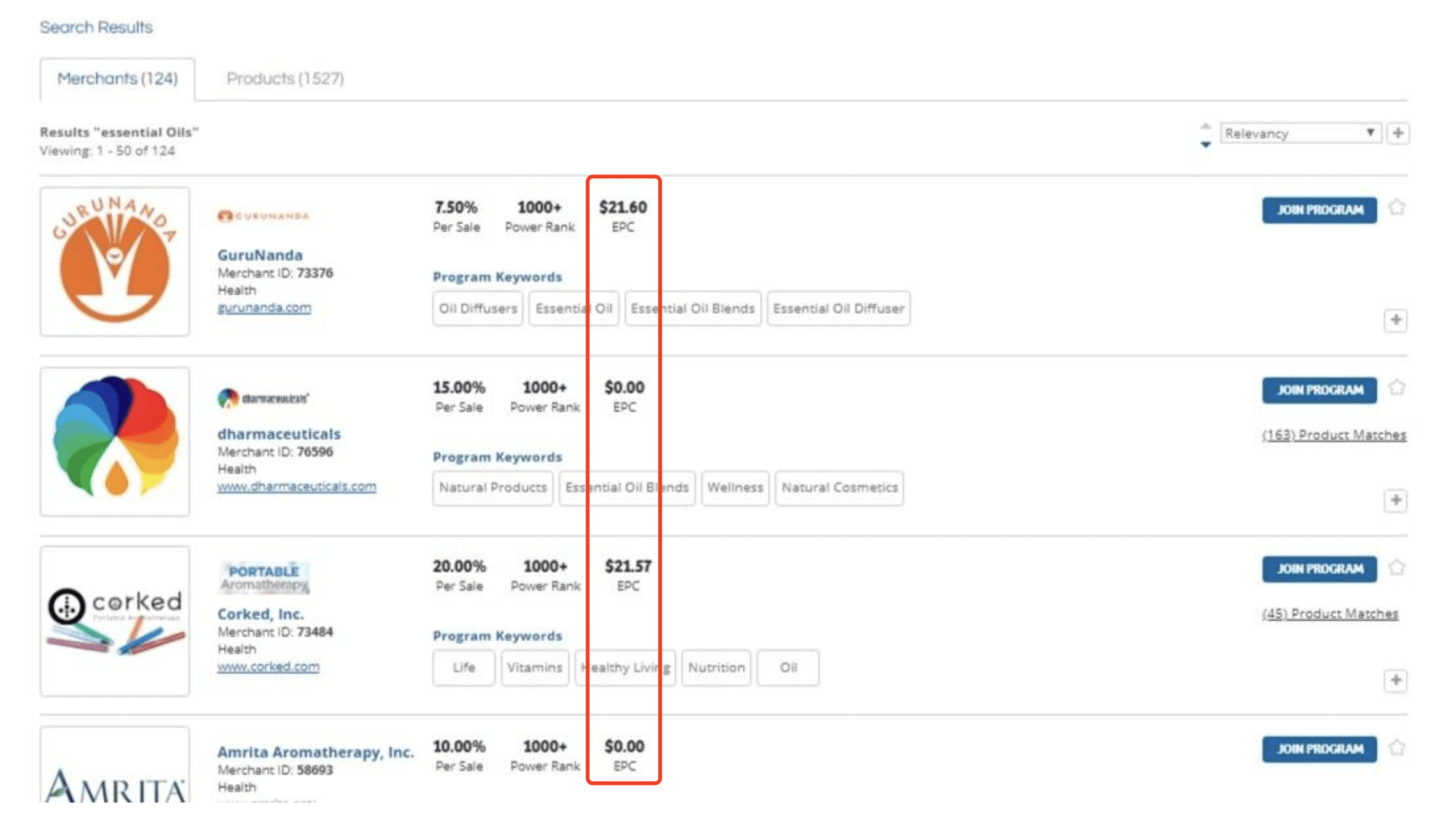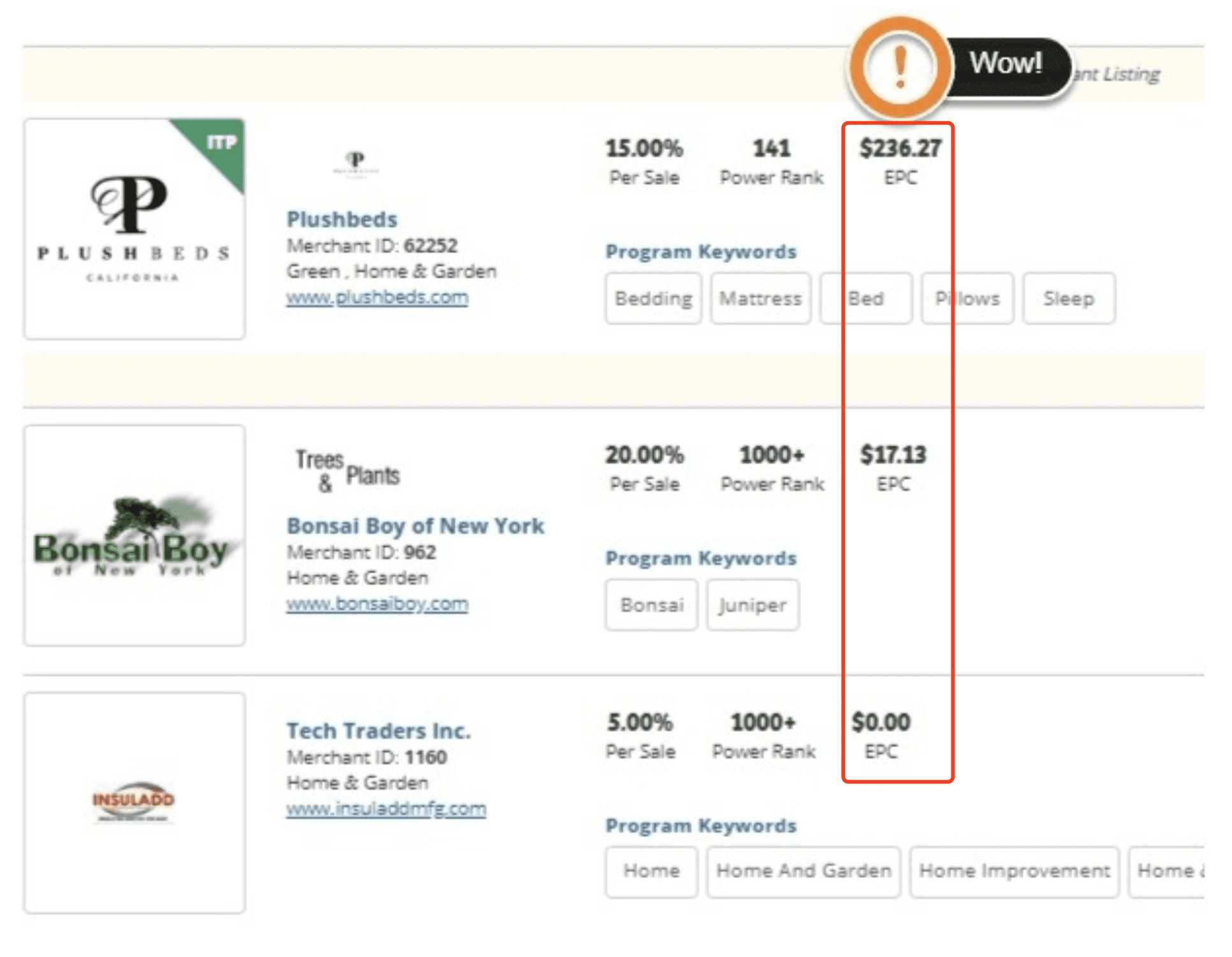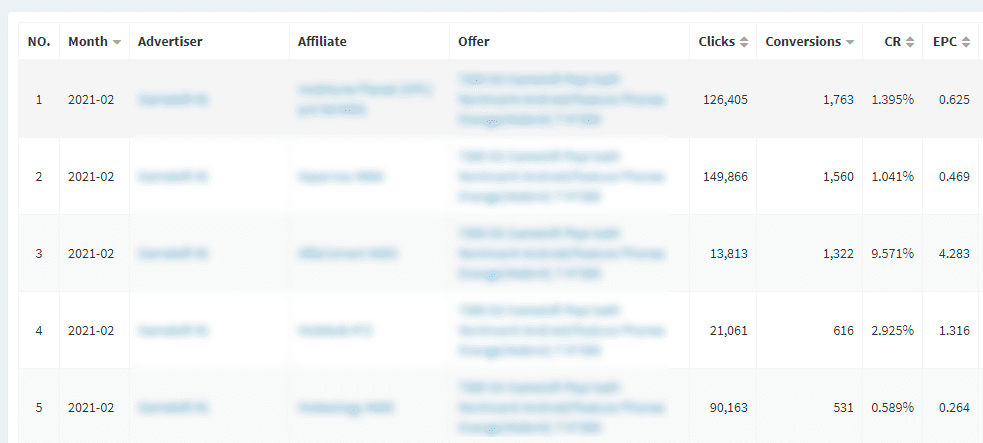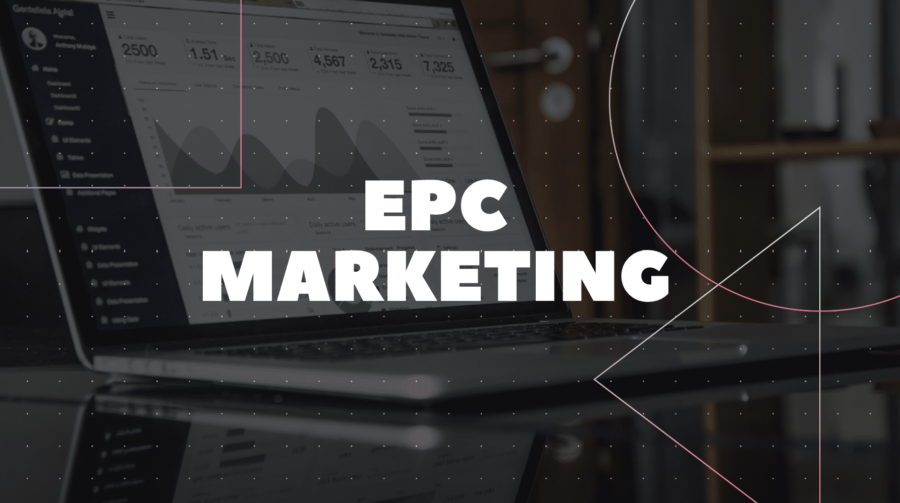Affiliate marketing is a big challenge to new marketers as it is full of strange lingo, acronyms, and abbreviations. If you are a newbie you can refer to our article about 30 must-know affiliate marketing terms.
One of the most important terms in affiliate marketing is EPC, or Earnings per 100 Clicks.
You may have heard it many times but do not know the exact meaning of it, let alone the great significance it has.
Well, today we are going to discussing:
- What EPC means
- Why EPC matters
- How to Increase EPC
Let’s get right into it!
What does EPC Mean?
EPC, standing for Earnings per 100 Clicks, refers to the expected average value you will earn for the clicks you achieve.
It is a common term that mostly used in affiliate marketing. For example, You may see this term popping up when browsing advertisers’ offers from affiliate networks or talking with affiliate managers.
When it was mentioned by affiliate networks, this data is sometimes called “Networks EPC” as it comes from the average value of all the affiliate traffic sent to the merchant.

The networks usually give the EPC data within a specified period of time, such as 7 days or 3 months. It could better display the earning potential of each offer because some products may have a higher EPC in the beginning but fall over time.
Why EPC Marketing Matters to Affiliate Marketers?
For many affiliate marketers who are not aware of EPC, they often turn to another metric – CPC, Cost Per Click. Seeking a low CPC, they can only try to reduce the cost of advertising while achieving the same results to keep themselves profitable.
Feel nowhere to start, right?
That’s because you haven’t leverage EPC yet. Once you get to know your EPC, then the CPC is not so relevant.
It’s not difficult to understand that profit equals earnings minus cost. How much you earn mainly depends on two metrics: EPC and CPC.
Your profit per click equals your earning per click minus your cost per click, just like the following formula. As long as your EPC is higher than CPC, you are going to earn money.

Note: To make it easier to calculate, here we use EPC as earning per click rather than earning per 100 clicks.
Let’s say you are an affiliate marketer looking for some products to promote. There are two products for you to choose from: product 1 with CPC of $10 and product 2 with CPC of $1.
Which one is better? You are more likely to choose product 2, right?
Wrong.
Don’t make your decision so quickly, as you haven’t got enough information yet. To make sure you are profitable, another metric you must know is EPC.
Let’s assume that the EPC of product 1 is $30 and the EPC of product 2 is $10. You can figure out the profits now.
Profit 1: $30 – $10 = $20
Profit 2: $10 – $1 = $9
Have you seen that? Even if Product 1 has a higher CPC, you can still earn more because it has a much higher EPC.
That’s why I said EPC is the most important metric for affiliate marketers.
With EPC, you can evaluate the earning potential of different affiliate campaigns when you want to make a comparison. For example, you could get a snapshot of how well a merchant’s program is performing by viewing the EPC data from the affiliate networks, and thus deciding to choose which offer.

Besides, EPC serves as a valuable insight tool for your marketing performance. After running your affiliate program, you could use EPC to analyze which offer performs better and then adjust your marketing strategy.
How to Calculate EPC?
To make it more clear, we’d better figure out how to calculate EPC first. You can get this metric by simply taking the commission you earn divided by the number of clicks on your affiliate links.
EPC is usually displayed in multiples of 100s. It is easy to work out with the formula below:

For example, if one gets a $100 commission after sending 500 clicks, then the EPC for this offer is $20, which means that you can earn $20 for every 100 clicks.
As mentioned above, EPC is worked out as an average. EPC of different affiliate partners may vary. Let’s say one links to a product with $1.00 EPC and another with $3.00, then the final EPC will be $2.00.
Key Points about EPC
Though there are so many articles about EPC, some could be misleading, especially for beginners. Here we pick out the following noteworthy points.
Earning per click or per 100 clicks?
As we said many times above, EPC is mostly calculated per 100 clicks. That is because earnings per click might be too low to compare.
Take the offer page of Shareasale as an example, the EPC of Plushbeds means you could earn $236.27 for every 100 clicks. To determine what you’ll get for one click, simply divide by 100.

Higher ≠ Better
Reading here, you might think that the higher the EPC, the better. Absolutely not.
Just imagine this scenario, you are running a blog about beauty makeup with plenty of followers, and here are two affiliate offers now.
Merchant 1: A famous sports brand with a $50 EPC.
Merchant 2: A cosmetics company with a $5 EPC.
The commissions for Merchant 1 are obviously much higher. However, EPC is not the only metric you should be concerned about. As you can see in the formula below, EPC is only related to one variable in the equation. To earn more, you have to increase PV and CR, and for this reason, choosing the relevant offer is a must.
Earning = Pageviews x click rate x conversion rate x commission
So in the example above, Merchant 2 is better suited for your affiliate marketing because it is more relevant to your existing audience, while Merchant 1 has little relevance.
Keep in mind your target audience must be in line with the offer you choose.
How to Increase EPC?
There is no surefire way to increase your EPC as every niche is different and the same hacks won’t work for every audience.
Still, don’t worry! Here we list some simple tips that would make sense.
1. Compare and identify the most profitable merchant
It sounds easy, but it’s hard to do. Before starting an affiliate program, you have to compare each merchant that fits your target audience and determine the one that pays the highest.
It would be a real hassle to research on your own, while it would be convenient to join an affiliate network where you can get EPC data from different merchants.
2. Optimize your affiliate campaigns
After choosing a proper offer, what is most important for you is to increase the conversion rate. It means you should do your best to convert your potential audience to real customers.
You can optimize your campaigns from the following aspects:
- Make first-class content to cultivate loyal audience
- Embed affiliate links in blog post, Vlog description or email
- Choose fast hosting to improve website loading speed
- Prepare promotion ideas for the upcoming holidays
- Create an informative and encouraging landing page
- ……
3. Track important metrics and adjust your strategy
For all the marketing campaigns, tracking and analytics is an essential part. You have to keep tracking the following metrics of each campaign: EPC, CPC, A/B test results, etc.
With these information, you can control your campaigns to ensure that you do not spend more than you earn. It also gives you an overall insight into your marketing performance and helps adjust your strategy.
You can get these data at once if you join an affiliate network, as they utilize performance marketing platforms such as Offerslook to track all the programs and generate real-time data, such as the report below.

In a nutshell, EPC is a marketing metric that allows you to know how well a product is performing and what kind of earning potential you can expect if you promote it.
Once you understand EPC marketing, you can leverage this metric to better choose a merchant’s offer as well as optimize your marketing strategy.
Keep in mind that EPC is not the only noteworthy metric. To boost your marketing income, you need to focus on the overall performance, including many other indicators such as CR, CPC, etc.
Also, if you are looking for performance marketing solutions or if you want to join some partner programs to get extra income, don’t hesitate to join Offerslook’s referral program and easily win up to $200 commissions.





